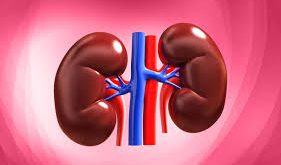Gut health is an indication of an individual’s physical wellbeing. A healthy gut maintains the body’s optimum functions. However, getting diagnosed with cancer in the intestinal region is heart-rending.
Small bowel cancer is a sporadic type of cancer that starts in the – a 20 feet long tube-like structure known as the small intestine. The primary function of the small intestine is to carry digested food from the stomach into the large intestine or colon, besides absorbing nutrients into the bloodstream. The small intestine also produces hormones that trigger digestion and aid the immune system in fighting viruses and bacteria that enter the stomach via the mouth.
Though the small intestine forms a significant part of the gastrointestinal tract, this organ’s cancer is relatively rare when compared to other types of stomach-related cancers like colon, abdominal, oesophageal, and rectal cancers.
The small intestine is divided broadly into three sections – the duodenum, the jejunum, and the ileum.
The duodenum forms the first section of the small intestine, connected to the stomach, pancreatic, and bile duct. The digestive juices thus secreted from the pancreas and liver enter the small intestine via the duodenum to aid digestion. The chief function of jejunum and ileum is to absorb nutrients from the food into the bloodstream.
Types of Small Intestine Cancers
The small intestine is a powerhouse of various types of cells, and there are four major types of cancers that can occur in this organ.
- Adenocarcinoma: Adenocarcinomas begin in the gland cells lining the inside of the intestine. Most of the small bowel cancers are adenocarcinomas.
- Neuroendocrine Tumour: Also known as carcinoid tumours, these neuroendocrine tumours (NET) are usually slow growing.
- Lymphoma: Lymphoma, often referred to as non-Hodgkin lymphoma, starts in the immune cells known as lymphocytes and can happen anywhere in the body, including the small intestine.
- Sarcoma: Sarcoma begins in the connective tissues around muscles and bones. The most common sarcoma in the small bowel is Gastrointestinal Stroma Tumour (GISTs).
Causes of Small Bowel Cancer
It is hard to pinpoint specific reasons that might cause small intestine cancer. Like other cancers, small bowel cancer is often a result of changes in the DNA of the healthy cells in the small bowel. When these abnormal cells grow and multiply, they clump together, forming a tumour. If not treated on time, these cells invade healthy cells and tissues nearby before spreading to other organs.
Other significant risk factors include a family history of small bowel cancer, genetic mutations that can cause health conditions like Lynch syndrome, familial adenomatous polyposis (FAP) and Peutz-Jeghers syndrome (noncancerous growths in the gastrointestinal tract), and other chronic gastrointestinal diseases, and weakened immunity.
Signs and Symptoms of Small Bowel Cancer
In most cases, the signs may mimic common stomach-related ailments. However, if you constantly suffer from the following symptoms, see a doctor immediately.
Ø Intense pain in the abdominal region
Ø Yellowing of the eyes like jaundice
Ø Severe fatigue and tiredness
Ø Nausea and vomiting for unknown reasons
Ø Unintended weight loss
Ø Blood in the stool
Ø Diarrhea that cannot be treated with medications and changes in the diet
Diagnosis of Small Bowel Cancer
Diagnosing small intestine cancer needs excellent expertise and is done by a very experienced oncologist. The doctor may recommend blood test and various imaging tests, including CT, MRI, PET-CT, nuclear medicine scans, and x-rays.
The patient may also have to undergo an endoscopic procedure for the doctor to view the internal organs and collect tissue samples for a biopsy.
Treatment for Small Bowel Cancer
The doctor may recommend surgery depending on the stage and location of cancer. Depending on the patient’s condition, the doctor may either opt for laparotomy (large incision on the stomach) or laparoscopy (small incisions on the region) to weed out the cancer cells.
The patient may undergo multiple chemotherapy cycles, radiation, targeted drug therapy, and immunotherapy.
Prevention
There is no definite way to prevent small bowel cancer. However, taking good care of the gut goes a long way in leading a healthy life.
Ø Include fresh fruits and vegetables rich in dietary fibre in your daily diet
Ø Cut down on alcohol
Ø Quit smoking
Ø Regular workouts
Ø Maintain healthy weight, thus keeping the gut healthy
By Dr. S K Bala, Consultant, Surgical Oncology, HCG EKO Cancer Centre, Newtown, Kolkata.
 Newspatrolling.com News cum Content Syndication Portal Online
Newspatrolling.com News cum Content Syndication Portal Online







